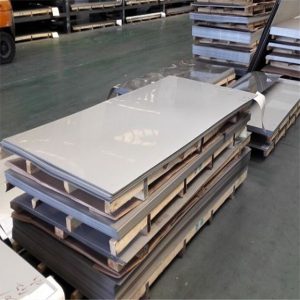Is 316Ti stainless steel cookware safe?
When it comes to selecting cookware, safety is often a top priority for home chefs and health-conscious individuals. Stainless steel, known for its durability, corrosion resistance, and ease of maintenance, has become a popular choice in modern kitchens. Among the various grades of stainless steel used in cookware, 316Ti stands out as a high-quality material that offers enhanced performance. But the question remains: is 316Ti stainless steel cookware safe for daily use?
1) Characteristics of 316Ti stainless steel
316Ti stainless steel is a variant of the widely used 316 grade, with the addition of titanium. This modification enhances the material's resistance to intergranular corrosion, particularly in high-temperature environments or when exposed to aggressive chemicals. It's this increased resistance that makes 316Ti stainless steel ideal for a variety of industrial and medical applications, where sterility and durability are paramount.
2) Safety in the Kitchen
When it comes to cookware, safety is paramount. Consumers are rightfully concerned about the potential for harmful substances leaching into their food. Fortunately, 316Ti stainless steel is considered highly safe for food contact. Here's why:
● Non-Reactive Nature: One of the primary reasons why stainless steel, including 316Ti, is considered safe for cookware is its non-reactive nature. Unlike aluminum or copper, which can leach into food under certain conditions, stainless steel does not react with food acids or alkalis, ensuring that the taste and nutritional value of your meals remain intact.
● Corrosion Resistance: The addition of molybdenum in 316 stainless steel, and subsequently in 316Ti, enhances its resistance to corrosion caused by salts, acids, and other corrosive agents commonly found in cooking environments. This means that your cookware will withstand exposure to various cooking liquids and ingredients without degrading or leaching harmful substances.
● Toxicity-Free: 316Ti stainless steel is free from lead, cadmium, and other toxic heavy metals commonly associated with health risks. Therefore, it poses no risk of contamination to food or water when used as cookware.
● High Temperature Stability: The titanium addition in 316Ti stainless steel improves its ability to withstand high temperatures without losing structural integrity. This makes it ideal for use in ovens, on stovetops, and even under direct flame, ensuring that your cookware remains safe and functional under extreme cooking conditions.
3) Practical Considerations
While 316Ti stainless steel cookware is inherently safe, there are still a few practical factors to consider:
● Cost: 316Ti stainless steel is generally more expensive than lower-grade stainless steel due to its enhanced properties. However, the investment often pays off in terms of durability and longevity.
● Maintenance: To ensure the longevity and continued safety of your 316Ti stainless steel cookware, proper maintenance is crucial. Regular cleaning with mild detergents and avoiding abrasive scrubbers can help prevent scratches and maintain the surface's integrity.
● Compatibility with Induction Cooktops: Not all stainless steel cookware is compatible with induction cooktops. Ensure that your 316Ti stainless steel cookware has a ferromagnetic base (often achieved through the addition of a layer of magnetic material) to ensure compatibility.
4) Conclusion
In conclusion, 316Ti stainless steel cookware is indeed safe for daily use in the kitchen. Its non-reactive nature, corrosion resistance, toxicity-free composition, and high temperature stability make it an excellent choice for health-conscious individuals seeking durable and reliable cookware. With proper care and maintenance, 316Ti stainless steel cookware can provide years of safe and enjoyable cooking experiences.







